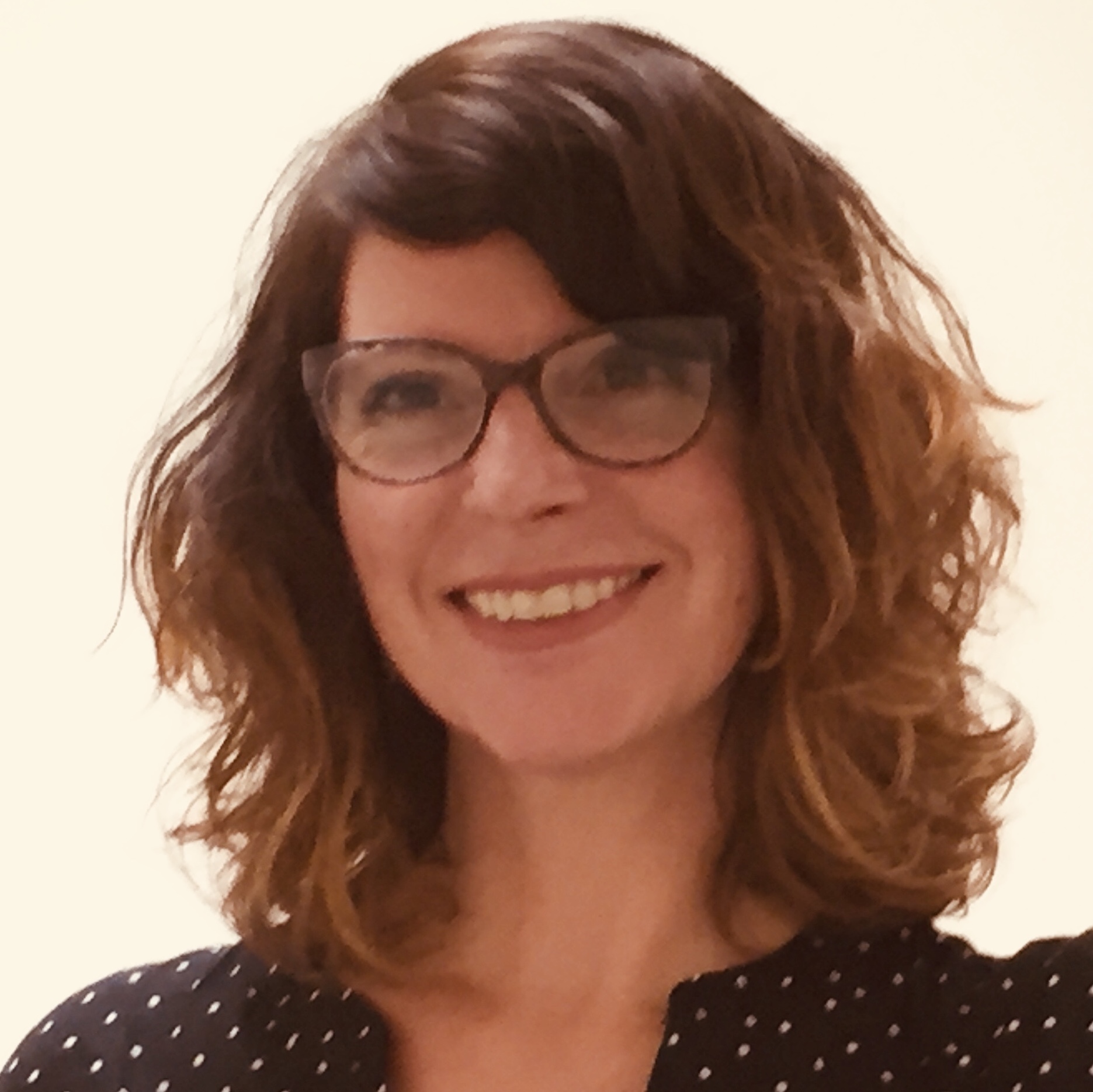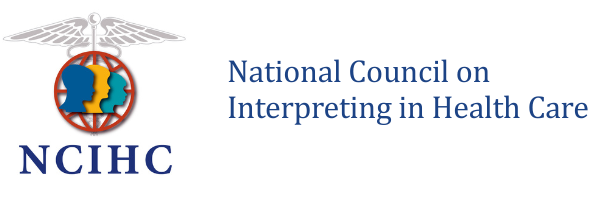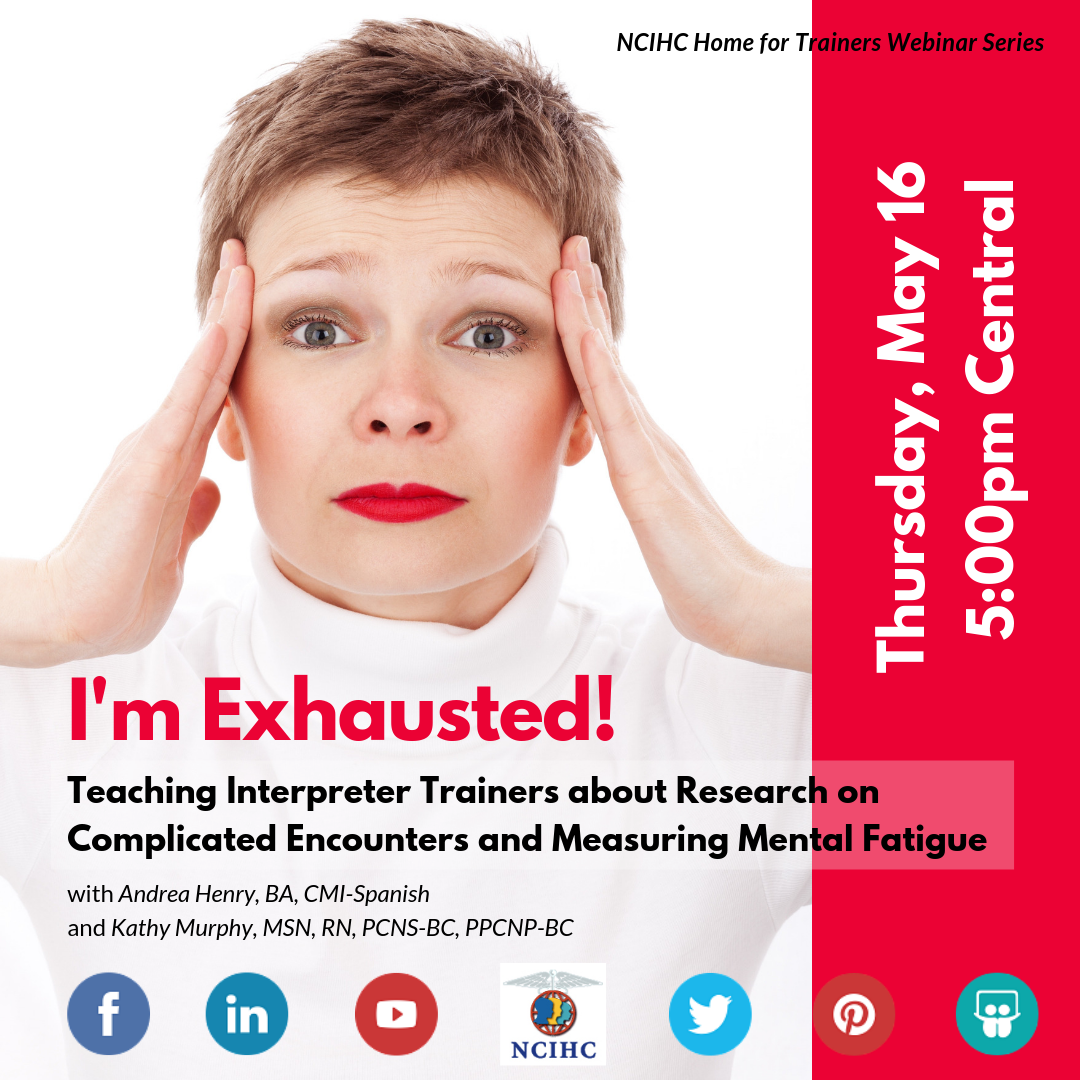I'm Exhausted! Teaching Trainers about Research on Complicated Encounters and Measuring Mental Fatigue
Healthcare interpreters' work can be mentally taxing. However, we are often uncertain as to what contributes to our mental fatigue, outside of the obvious issue of long encounters and long workdays. Unfortunately, interpreter fatigue is not well documented. This presentation provides information on various factors that can affect both concentration and performance contributing to mental fatigue. It also sheds light on precedents in other industries that make the case for use of a measurement tool to address such factors and mental fatigue in a more sophisticated way.
Gaps in understanding interpreter mental fatigue led the presenters to develop and internally validate the Complexity and Fatigue in Interpreted Encounters (CFIE) tool. The CFIE, comprised of three domains: paralinguistic, sensory and intrapersonal/physical, includes 16 affirmative factors identified by interpreters as causes of mental fatigue. Seven interpreters participated in using the CFIE tool across 444 interpreter encounters. The presenters will share their findings which indicated increased mental fatigue in departments with high acuity, fast pace and unpredictable encounters. Interpreters experiencing mental fatigue may jeopardize accuracy of interpretation in these encounters, resulting in unfavorable patient outcomes. The presenters will discuss plans for future research on interpreter inaccuracies related to mental fatigue.
Interpreter trainers will consider the implications of the study’s results and their relevance to interpreter skill development and real-world performance. Trainers will also gain insight into the need to present these concepts to their students.
At the end of this presentation the participant will:
- Identify common factors which contribute to interpreter mental fatigue
- Learn about precedents in other fields for measuring workload & productivity
- Describe research that focuses on measurement of interpreter mental fatigue in a healthcare environment
- Consider ways that trainers can apply these concepts in interpreter training programs
About the presenters:

Kathy Murphy is a Clinical Nurse Specialist at Children’s Healthcare of Atlanta-Egleston. In her nearly 30 year tenure at Children’s, Kathy serves as an educator on congenital heart defects for patients, families and staff. She has authored 2 book chapters on Pediatric Assessment and has conducted nursing research in the heart center. Kathy has been responsible for the development of numerous patient and family education materials for cardiac patients and families. She has been awarded the Golden Apple award for excellence in patient education twice. Kathy was also a Georgia March of Dimes finalist for Advanced Practice Nursing.

Andrea Henry has been active in healthcare interpreting for 23 years, beginning her career in 1994 as a freelancer and later as a fulltime remote interpreter in Portland, Oregon. After relocating to Atlanta, Andrea spent six years in development/management. Andrea earned her B.A. from the University of Oregon in Spanish/International Studies with a minor in Ethnic Studies. She is a national expert on interpreter fatigue research. She has received over 120 hours of interpretation education and has attended 30+ conferences. The most satisfying part of Andrea’s career is working as an interpreter at Children’s Healthcare of Atlanta while carrying out this research.
|






